5,000 developers talk about their salaries — Free Code Camp
Save article ToRead Archive Delete · Log in Log out
2 min read · View original · medium.freecodecamp.com
5,000 developers talk about their salaries


Let’s dive into the most interesting results from the O’Reilly 2016 Salary Survey of 5,000 developers (which excluded managers and students).
The gender pay gap is real

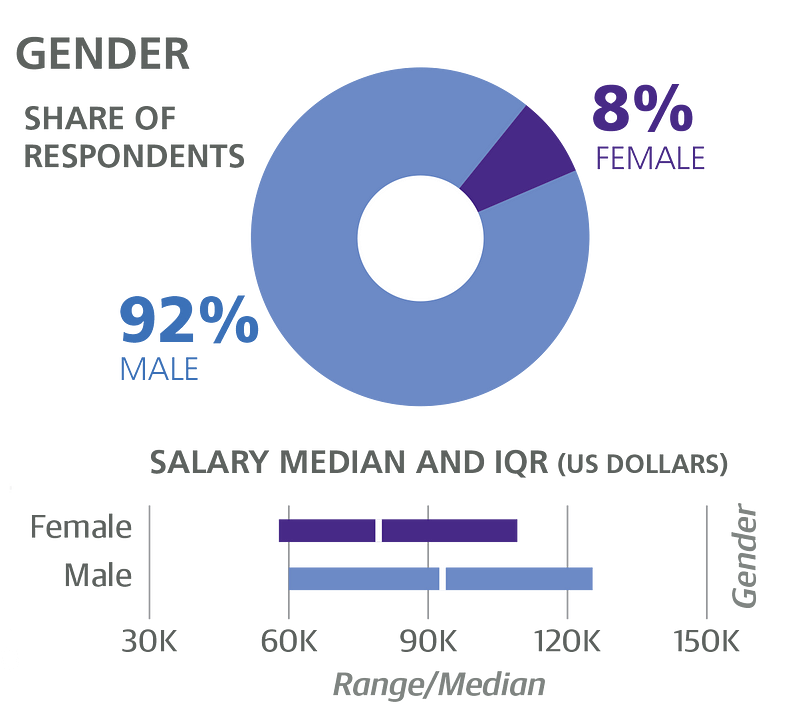
Not only are women grossly under-represented among developers, but they are grossly under-paid.
Women earned on average $13,000 less than their male counterparts.
Even when you control for location, title, and years of experience, women still get $5,000 less per year than men.
Employers actually do value age and experience

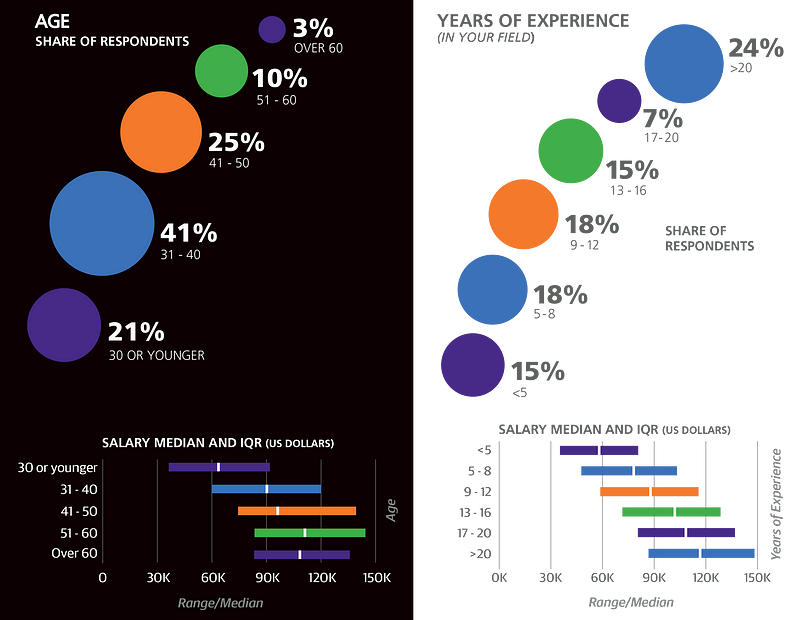
One of the most common misconceptions about programming is that it’s a “young person’s game.”
But the astronomic salaries of recent college graduates at companies like Facebook are not representative of the field as a whole.
There’s a predictable correlation: the more experience you have — and generally, the older you are — the more you get paid. $1,194 more each year, to be exact.
Developers who shun meetings pay a price

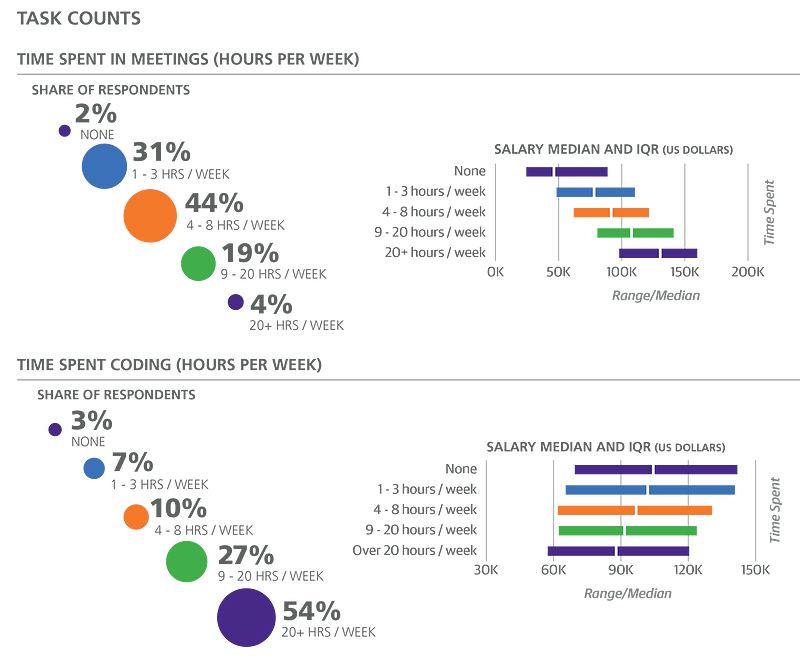
Like it or not, developers who spend more time in meetings — and less time coding — tend to make more money.
The bigger the company, the bigger your salary

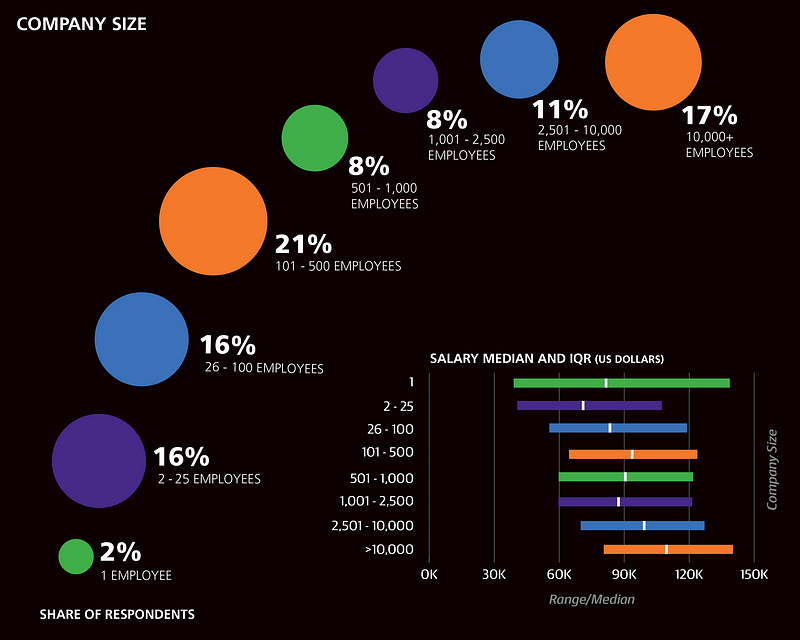
Part of this may be explained by smaller companies (startups?) granting equity in lieu of large salaries.
Interestingly, when you control for experience and location, freelancers make about $12,000 more per year than their full-time employee equivalents (though it’s not clear how much of this goes toward paying their own insurance.)
Most software jobs are actually outside of the tech industry

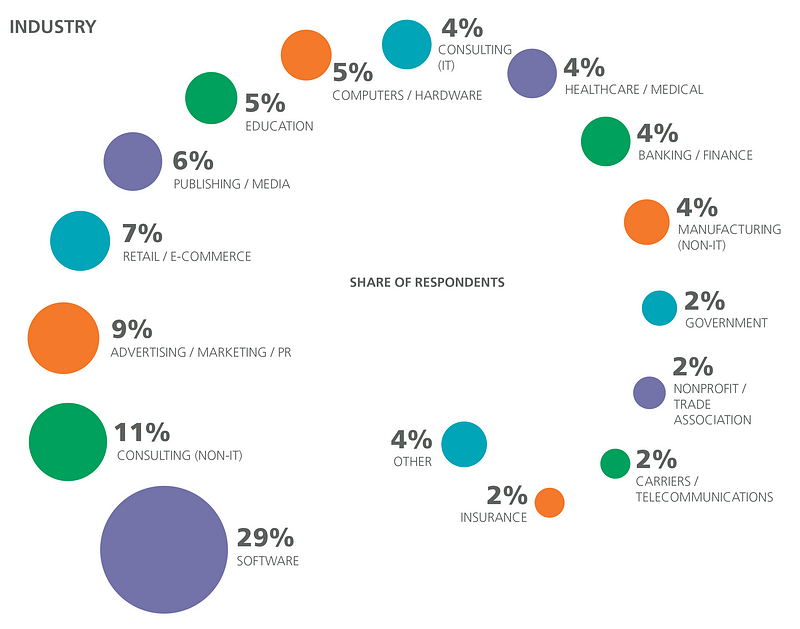
Pretty much every large organization employs developers. Only about 1/3 of developers work in what we traditionally think of as the “tech” industry.
But some industries pay better than others

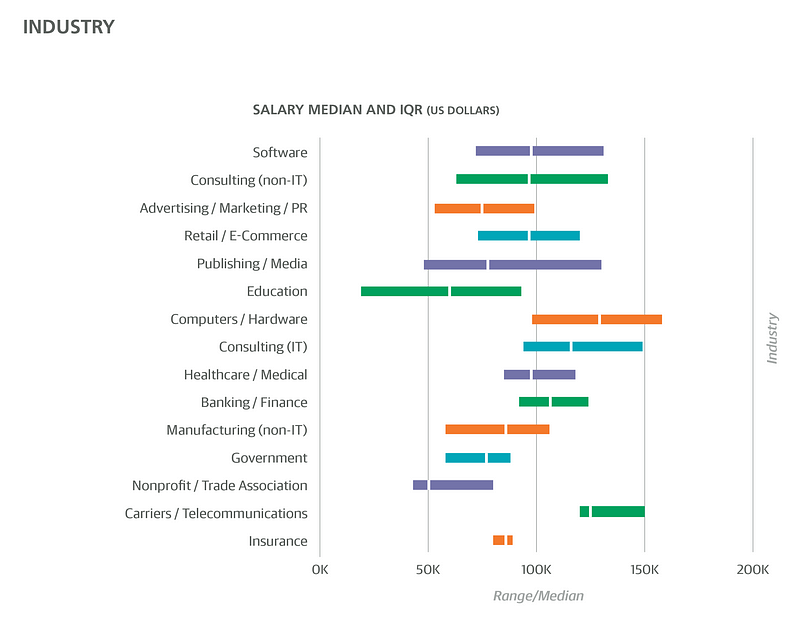
The median annual developer salary was $90k.
But the same job in finance pays $11k more per year.
Education pays the worst — $11k less than median.
The more you work, the more you get paid

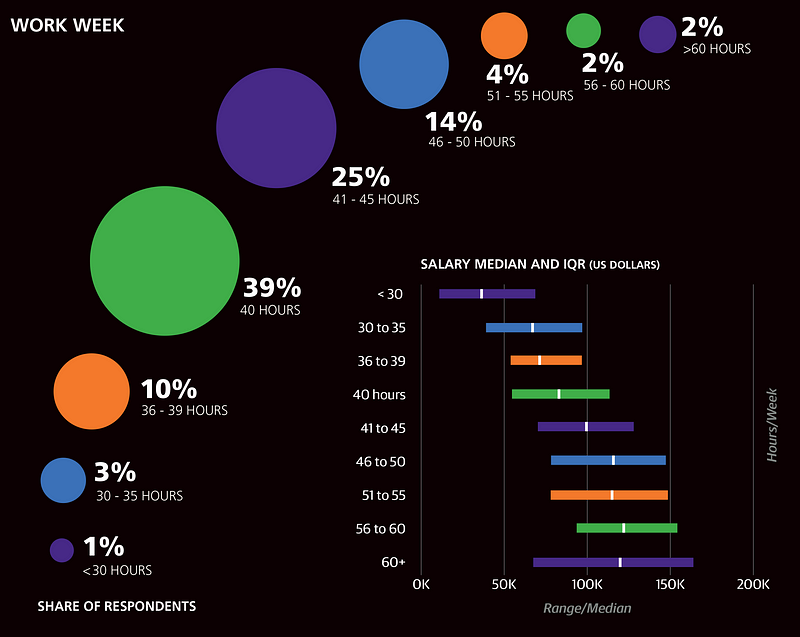
Working smart is no substitute for working hard, at least as far as compensation is concerned.
About half of developers reported working 40 hours or more a week. And since the developers who spend the most time at their desk generally take home the most money, it’s hard to blame them.
What about people who are new to development?
We’re running a global survey of people relatively new to coding. It explores socioeconomic background, family background, age, military status, and much more.
The full dataset will be released under the Open Data Common License in late April 2016, and you can already view some of the aggregate live results here.
11,000 people have taken this survey in the past few days, and you should, too — it’s completely anonymous and only takes 5 minutes.
So click the green heart below to recommend this article to your friends, then take the survey.

And here’s the full O’Reilly survey analysis (note: it’s email-walled).